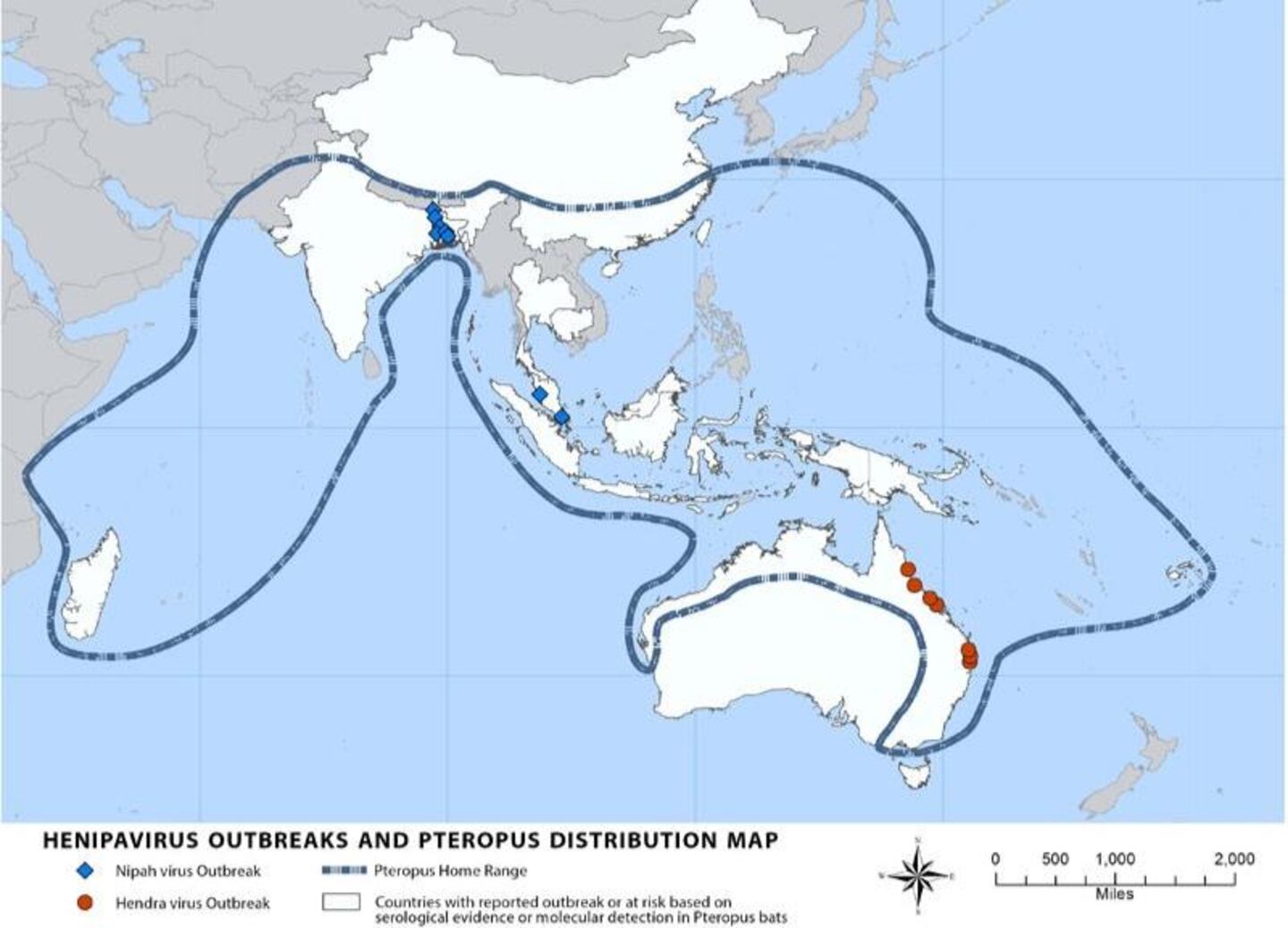At least 12 people have died of Nipah virus in the Indian state of Kerala since the rare outbreak began weeks ago, according to a Health Ministry official.
Another 40 with Nipah symptoms are being treated in area hospitals.
TRENDING NOW:
- Joleen Cummings disappearance: Timeline of events
- Woman falls 100-plus feet at local state park
- Meghan Markle's coat of arms released: what does the emblem mean?
- VIDEO: Weinstein arrested and charged
Here’s what you need to know about the virus:
What is Nipah virus?
According to the Atlanta-based Centers for Disease Control and Prevention, Nipah virus was first isolated and identified in 1998-99 when Malaysian and Singaporean pig farmers and others in close contact with the animals suffered with encephalitis (inflammation of the brain) and respiratory illnesses.
The virus, a member of the family Paramyxoviridae, is named after the Malaysian village of Sungai Nipah, where many pig farmers became ill.
In 1999, nearly 300 human cases of Nipah virus were reported, including 100 deaths. More than one million pigs were euthanized to contain the outbreak.
The virus is more frequent in Bangladesh and India, where exposure to Nipah virus has been associated with eating raw date palm sap and with contact with infected bats or humans.
Nipah was first identified in Bangladesh in 2001. Annual outbreaks have occurred there and in eastern India since.
How is Nipah virus transmitted?
(Photo: Centers for Disease Control)
The virus is typically transmitted to humans after direct contact with bodily fluids of infected bats (commonly fruit bats of the Pteropodidaefamily), pigs or other infected people.
As aforementioned, consumption of raw date palm sap has also been associated with exposure to the virus. Fruit bats often eat dates from palm trees and sometimes nest in wells.
"Hospital-acquired infections are a major path of human to human transmission," the Indian microbiologist G. Arun Kumar testing the virus samples in India, told Reuters.
To prevent #nipah virus infection:
— WHO South-East Asia (@WHOSEARO) May 25, 2018
-Avoid consuming raw date palm sap or fruits contaminated or partly eaten by #bats🦇
-Wash hands regularly with soap & clean water
-Avoid contact with infected patients
Visit our #NipahVirus page for more information:
👉https://t.co/hxP3AZLT8d pic.twitter.com/xC4TfYxtLz
Symptoms of Nipah virus
- fever
- headache
- drowsiness
- disorientation
- mental confusion
- respiratory illness
According to the CDC, symptoms typically begin with fever and headache 5-14 days after exposure.
Treatment of Nipah virus
There is no vaccine for Nipah, and no treatment beyond supportive care.
"The drug ribavirin has been shown to be effective against the viruses in vitro, but human investigations to date have been inconclusive and the clinical usefulness of ribavirin remains uncertain," the CDC reports.
The virus kills up to 75 percent of those infected.
The Associated Press contributed to this story.
Attention quite rightly focused on ebola in DRC - but as reported @ProMed_Mail - Health officials in the south Indian state of Kerala say nine people have died in confirmed and suspected cases of Nipah virus - a focus of @CEPIVaccines https://t.co/xJBkUxDJvS
— Jeremy Farrar (@JeremyFarrar) May 22, 2018
Nurse Lini died in our battle against the Nipah virus. She died trying to save patients infected by it. She was just 31 & was a mother of two little kids. If she is not a martyr, I don't know who is. pic.twitter.com/xF2rZrtuRv
— Darwinte Thantha (@inquestioner) May 22, 2018
Cox Media Group







